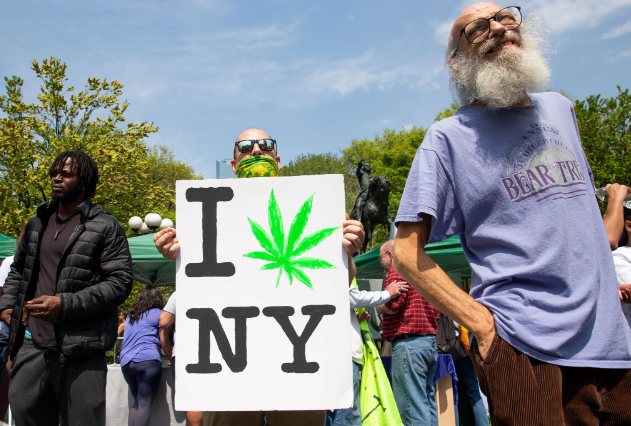Challenges and Competition for Legal Cannabis in Manhattan as New York’s Adult-Use Program Slowly Takes Shape
NEW YORK, New York’s adult-use cannabis program has finally started to take shape with four legal stores now open and operating. However, the road to get here has been long and fraught with challenges, and the program is still very much a work in progress.
The Office of Cannabis Management (OCM), which oversees the program, has prioritized social justice applicants and nonprofits in the licensing process, which has slowed down the opening of stores. The OCM also switched from the vertical structure used in the medical program to a completely opposite structure in the adult-use program, which further complicated matters.
But even before the pivot to prioritize social justice, decriminalization had already been passed. At the time, it seemed like there would only be a six-month wait for stores to open, making sense to wait it out. However, the delay in opening legal stores created an opportunity for illegal stores to proliferate. While some refer to these illegal operators as “legacy operators,” they are mostly just opportunists.
Adding to the complexity, there are still no real laws governing the adult-use program, only suggested guidance. It’s unclear when the actual laws will be passed. The city has said it will go after landlords that rent to illegal dispensaries, but except for a few highly publicized raids, little else has happened.
In addition to illegal storefronts, sidewalk dealers sell mostly California and Colorado cannabis at cheap prices, with the ability for the consumer to look and smell their potential purchases – something they can’t do in a legal store. The legal stores in Manhattan are also operating just a short distance from street dealers – and each other. The three stores are within a 10-15 minute walk from each other, which is a short walk for most New Yorkers.
For instance, it’s only a 12-minute walk between Smacked Village and Housing Works Cannabis Company. Both are close to New York University, where roughly a third of the student population is under the age to buy legal cannabis. Of course, street dealers don’t ask for ID.
Despite the challenges, the opening of legal stores in New York is a positive development for the state’s cannabis industry. However, there is still much work to be done to ensure that the program is successful and equitable. This includes passing comprehensive laws and regulations, cracking down on illegal operators, and creating a thriving legal market that benefits everyone involved.
(This information is primarily sourced from Reportlinker. Highly Capitalized has neither approved nor disapproved the contents of this news release. Read our Disclaimer here).


































